What are the linkages between project management and LEGO SERIOUS PLAY?
There is so much written on good project management practice (just google “why projects fail”) that it should be impossible for initiatives to fail. How many projects fail? According to the source below, only a meagre 14% of projects are successfully delivered (Source: Harvard Business Review, American Marketing Association, Arras People, the performance factory, further analysis execon partners).
Why does it happen? Among the myriad of available study results on “why projects fail”, this is my favorite graph:
Lesson one of project management teaches us that every project should start by establishing clear, workable goals and give one person the ultimate ownership and accountability for meeting them – the project manager. Yes, it’s the project manager’s responsibility to make it successful, no one else’s. Despite all the training we receive on the art of project management, the above graph tells us very clearly that without great communication between relevant parties we have 57% chance of failure.
Robert Goatham – principal at Calleam Consulting Ltd. – states “…the causes of [projects’] failure can be viewed at a number of different levels…”, making itnecessary to distinguish between just symptoms and the root causes. As Robert’s diagram shows (see below), we do not find “hard” causes at the root of project failure. Let me explain what I mean.
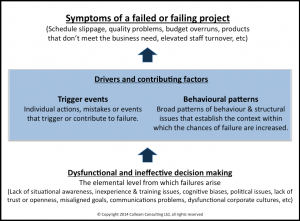
Source courtesy of Calleam Consulting Ltd.: http://calleam.com/wp-content/uploads/components-in-failure1.png
Project management training teaches good “hardware” techniques – equipment we can use to nail down, screw and saw the things rationally needed during the project journey. However, we don’t get the “software” to manage things like personal ownership, awareness, trust and openness, commitment, engagement, a joint culture, a shared vision. Just two examples based on my experience: having documented roles and responsibilities is no guarantee for team members’ performance; a stakeholder engagement plan is no guarantee for individuals’ support – so, there is an unequivocal need for “soft” team-effectiveness beyond the rationality of a project delivering process.
It starts with the project kickoff…
With a project kickoff we start a new community, a new phase. That’s the stage to set up all the basics and build a cohesive, high-performing, effective and inspired team. But how can we achieve this with classical project kickoff meetings where:
- 80 to 90% of the participants stay silent and have no say at all – no voice means no commitment, no participation and no share
- a few strong personalities grab most of the talking time and overload participants with their own interpretation of the desired outcome – no shared objective means no sustainable cooperation, no ownership and poor engagement
- we are most likely meeting for the first time and probably don’t know each other at all, coming from different functions and legacies; with different priorities and personal needs; and with incompatible vocabularies (think about IT and business jargons)
- somebody explains on dozens of PowerPoint slides how the project should function, while most of the audience look at their mobiles, laptops, or I-watches.
How do you build an effective project team with a memorable kickoff meeting?
LEGO® SERIOUS PLAY® addresses exactly this issue. It focuses on:
- 100% participation
- with everybody having a “say”
- in a safe (and enjoyable) environment.
It levels the meeting table, engaging 100 percent attention and participation. It helps project leaders who recognize that the only sustainable source of success is the experience, knowledge and commitment present in people around them: the team members.
How does LEGO® SERIOUS PLAY® work?
The key recurring elements of the LEGO® SERIOUS PLAY® process are very practical (like building models, sharing thoughts, and collectively learning) and count on the belief that people naturally want to contribute, be part of something bigger and take ownership.
The facilitator builds a safe environment where each one of the participants has time to produce relevant artifacts and has a voice to share meanings, while focusing on a common strategic objective. Allowing each member to actively participate and speak out, the process generates in a natural manner a more comprehensive and sustainable picture.
The contribution of each individual (and the exclusion of any distraction) arises instinctively from the playful yet serious nature of this method. Active participation also facilitates taking ownership and personal commitment to support the co-created outcome.
- Imagine each one of the kickoff participants building a model to explain his/her understanding of the project to others…
- Imagine all these single models harmonized into one big negotiated model – representing both the project as a whole and each participant’s understanding of it…
- Imagine the team creating a story around the model – a story that explains the project’s vision, objectives, way of working together, personal commitments, personal desires, personal contributions…
- Imagine each one of the project team members telling this story in front of the whole team
…would we trust this project team to work more effectively together and to be on the good way to succeed?
Would you like to test the LEGO® SERIOUS PLAY® methodology in your next kickoff meeting? I am happy to work out a specific suggestion to target your specific project kickoff. My email: lorenzo.nanetti@wanadoo.fr

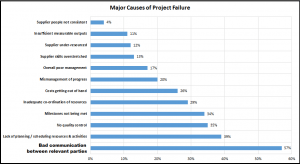
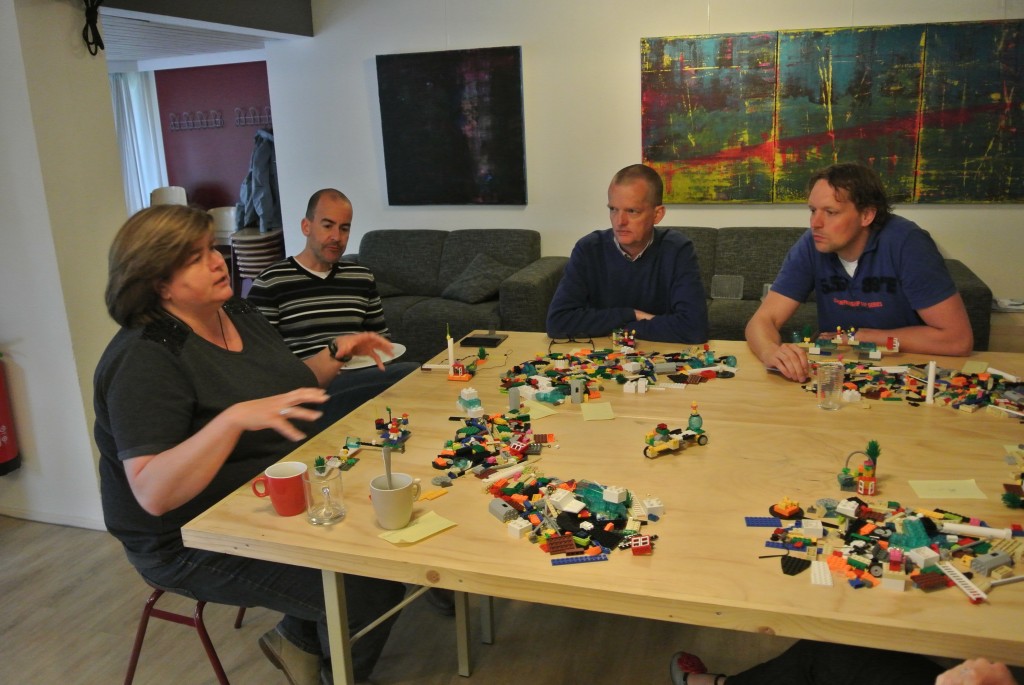

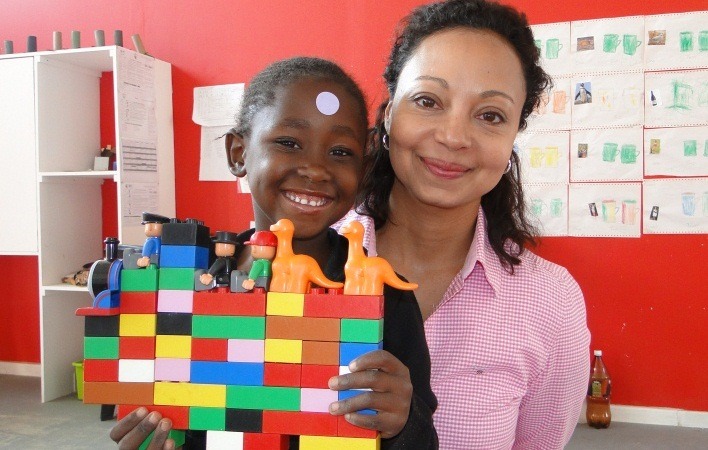
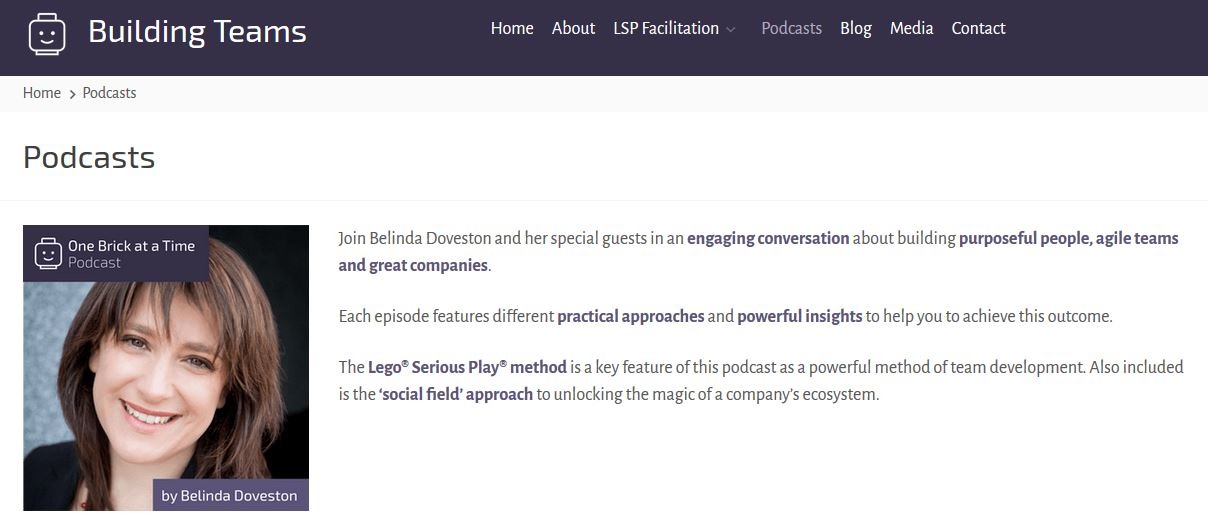

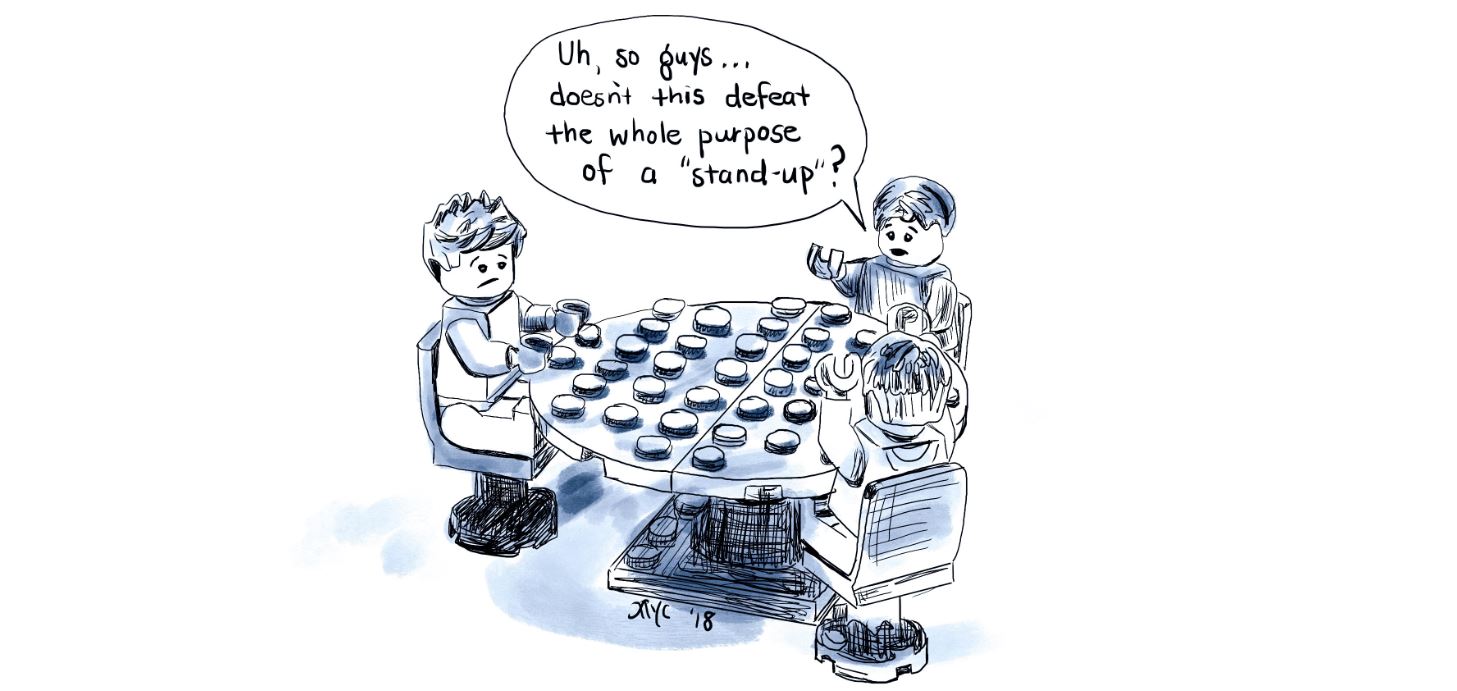

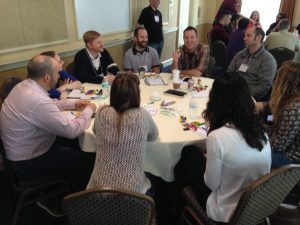
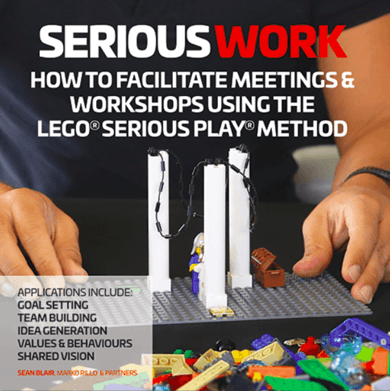
 Become a LEGO Serious Play facilitator - check one of the upcoming training events!
Become a LEGO Serious Play facilitator - check one of the upcoming training events!